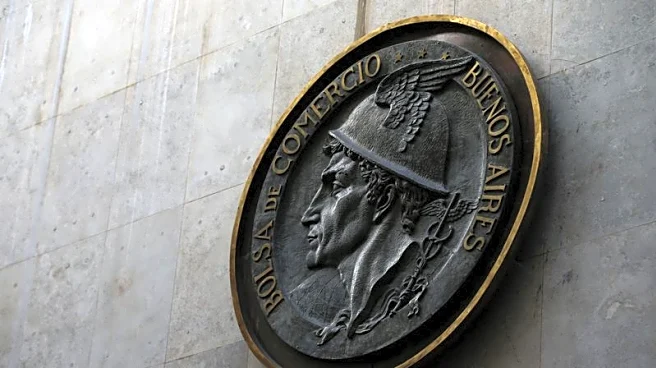What is the story about?
What's Happening?
Researchers, led by Alexssandre de Oliveira Jr. at the Technical University of Denmark, have developed a novel method to detect quantum phenomena such as superposition and entanglement by observing heat flow. This approach challenges the classical understanding of the second law of thermodynamics, which states that heat flows from hot to cold bodies. The team demonstrated that at the quantum level, heat can flow from cold to hot, a phenomenon that can be used to measure 'quantumness' without disrupting the quantum state. This method involves connecting a quantum system to a secondary system that stores information and a heat sink, allowing for the detection of quantum states by measuring the heat sink's temperature.
Why It's Important?
This development has significant implications for the field of quantum computing and quantum cryptography, as it provides a non-invasive way to verify that quantum systems are functioning correctly. By ensuring that quantum computers are utilizing quantum resources, this method could enhance the reliability and efficiency of quantum technologies. The ability to measure quantum states without destroying them is crucial for advancing quantum computing, which relies on maintaining delicate quantum states for processing information. This breakthrough could lead to more robust quantum systems and accelerate the development of quantum technologies.
What's Next?
The research team is in discussions with Roberto Serra's group at the Federal University of ABC in São Paulo, Brazil, to test their method experimentally. If successful, this could pave the way for practical applications in quantum computing and other technologies that rely on quantum mechanics. The scientific community may see increased interest in exploring the thermodynamic properties of quantum systems, potentially leading to new discoveries and innovations in the field.
Beyond the Headlines
The research highlights the intricate relationship between thermodynamics and information theory, suggesting that information can be a thermodynamic resource. This concept, rooted in the work of physicists like James Clerk Maxwell and Rolf Landauer, underscores the potential for information to be transformed into work, a principle that could have far-reaching implications beyond quantum computing, affecting fields like data processing and energy management.

















